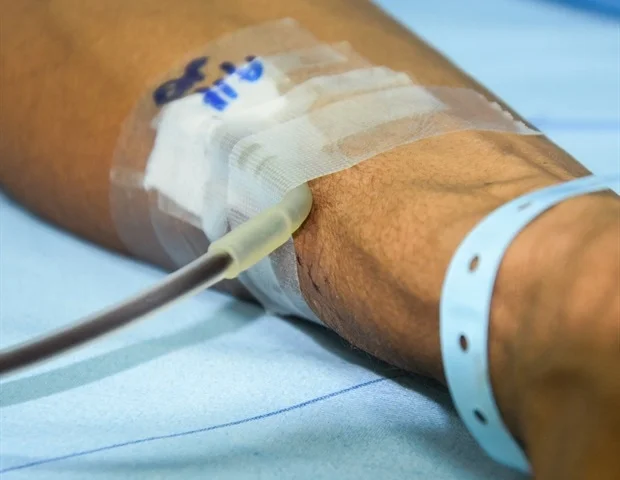
Experts in blood banking and transfusion medicine have warned that it is unsafe to transfuse blood to patients four hours after leaving the blood blank.
The caution, the experts noted, has become necessary to ensure quality and safety in the blood banking business in the country.
According to the experts, the purpose of blood transfusion is to save lives and not to cause harm to patients.
The experts also decried the lack of donor blood in Nigeria, lamenting that most of the blood supply was from remunerated donors.
The experts spoke at the 10th Annual Scientific Conference and Investiture of the Blood Bank Society of Nigeria, Lagos State chapter, held at the Sickle Cell Foundation, Idi-Araba, Lagos.
In his presentation which centred on the theme of the conference, ‘Quality management system in blood banking: Globalisation of products services standard’, the keynote speaker and a professor of Laboratory Haematology and Blood Transfusion Science at the College of Medical Sciences, University of Calabar, Cross River State, Anthony Emeribe, said quality is the hallmark of blood banking.
Prof. Emeribe, who is a member of the World Health Organisation Strategic Advisory Group of Experts on In-Vitro Diagnostics, said, “All establishments with blood banking need to incorporate ample elements of quality improvement.
“We need to change the paradigm that we have where most of our donors are remunerated to non-remunerated blood donors.
“We need to have quality improvement in our various centres and that means engaging and training the staff from time to time, emphasising ethics in blood banking to get the best.”
The former Registrar and Chief Executive Officer of the Medical Laboratory Science Council of Nigeria stressed that standards must be maintained in blood banking, adding that donor blood is required to improve the health of patients.
Prof. Emeribe who is also a Consultant Haematologist at the University of Calabar Teaching Hospital said, “I emphasise on standard.
“What is required or what is expected is that when blood is required and ordered from the blood bank, that that blood is expected to be transfused from within 30 minutes that it leaves the bank or it leaves that temperature where it is stored and not more than four hours.
“That is what is required because the blood that is beyond four hours out of the bank will no longer be useful optimally to the patient that receives it.
“If a patient receives that blood fours after leaving the blood bank, there will be adverse effects. First, there could be transfusion reactions and some of them could be mild, moderate, or fatal.
“So, you will need to avoid that. Donor blood is to improve health and not to cause harm to the patient that receives it. That is why we must maintain these ethics and standards in blood banking.”
The haematologist said there should be a connection between the blood banks and the hospitals that require the blood for there to be efficiency and effectiveness of use.
He noted that donor blood is very critical in managing certain medical conditions whether it is childbearing, road traffic accidents, various anaemias, or diseases like leukemia.
He, however, said, “In Nigeria, we are still having challenges of inadequate donor blood to fill the required shelf.
“In Nigeria, the projection is that we require up to about 1. 5m units of blood each year but we are yet to get up to 40 per cent of that.
“In our country, most blood donors are remunerated, which should not be the case. The ideal which we are advocating for is to have non-remunerated donors.”
Chairman, Lagos State chapter of the Blood Bank Society of Nigeria, Dr. Thomas Fabunmi, in his opening remarks, said as good as blood transfusion is, if the quality is not maintained, it can lead to the death of the patient-recipient.
Fabunmi noted, “So that is why as an association, we try to bring up this topic so as to raise the bar in the practice of our members to be able to meet up with internationally acceptable standards in blood banking.”
He also noted that the high cost of diesel was affecting the operation of its members, stressing that the blood bank had to be kept at a particular range of temperature which required a good power supply.
He called on the government to make power supply available to members of the society.
Executive Secretary of Lagos State Blood Transfusion Service, Dr. Bodunrin Osikomaiya, said blood is a very delicate thing that should be handled with care.
Osikomaiya, a consultant haematologist said, “Blood transfusion is as good as a transplant because you are taking a body part from somebody and putting it into somebody else.
“Blood needs to be safe. Once it comes to products that will go into an individual’s body, we need to be very careful. There are WHO requirements for safe blood and everything must be followed up with.”
Copyright PUNCH













